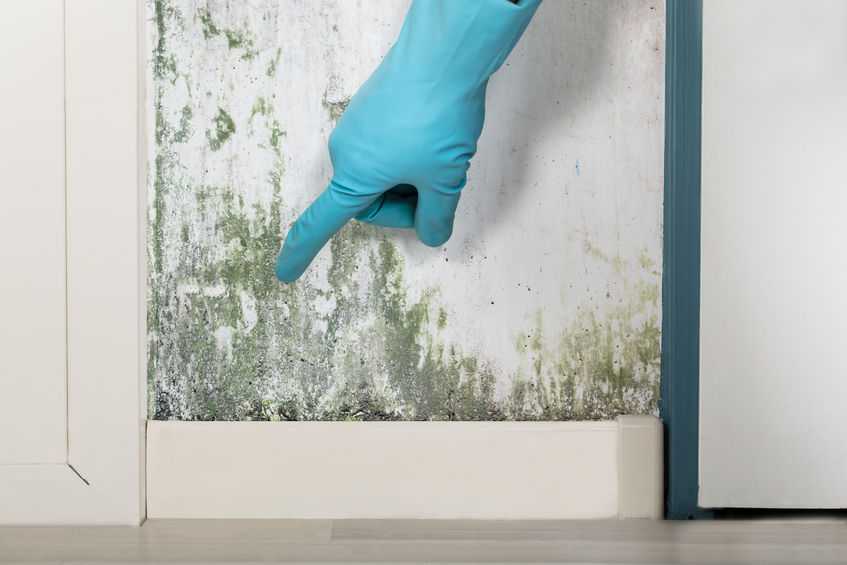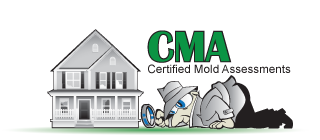 It is quite difficult to get rid of mold completely especially if you are experiencing a recurring problem. Mold spores that are released into the air are toxic when inhaled or ingested. It is easy to inhale them accidentally because they are microscopic in nature. Symptoms of mold spores in the lungs include persistent cough, sneezing, and wheezing. All these symptoms are natural defense mechanisms used by the body to expel the mold spores present in your lungs. Having an idea of what eliminates mold spores ensures proper sanitation and a quality place to stay. Here are five ways to rid the air in your home of mold spores.
It is quite difficult to get rid of mold completely especially if you are experiencing a recurring problem. Mold spores that are released into the air are toxic when inhaled or ingested. It is easy to inhale them accidentally because they are microscopic in nature. Symptoms of mold spores in the lungs include persistent cough, sneezing, and wheezing. All these symptoms are natural defense mechanisms used by the body to expel the mold spores present in your lungs. Having an idea of what eliminates mold spores ensures proper sanitation and a quality place to stay. Here are five ways to rid the air in your home of mold spores.
- Ventilate Your House
Humid areas in a house such as the kitchen and bathroom need to be kept dry and well ventilated to reduce the level of moisture. Molds that grow in damp environments compromise indoor air quality in your home. Installing trickle vents may help circulate and purify the air you breathe indoors. Exhaust fans in kitchen and bathrooms can also do a great job of expelling the pollutants to the outside. Always open your windows and doors during the day to allow in fresh air. Mold problems usually result from poor ventilation because the spores are trapped indoors giving them enough time to multiply in the right environmental condition.
- Remove any Visible Mold
It is a waste of time running the fans, or air conditioners in your house if you have not dealt with the real problem. Most of these spores are released by the mold growing behind your walls or in hidden places around your house. If you notice a musty odor but have difficulties identifying the mold, you need to schedule a professional mold inspection to help you detect and manage the situation. If it is detected, the necessary steps need to be taken to get rid of mold from your house. If no mold is found but you can still smell the musty odor every time you walk into your home, then it could be coming from the outside.
- Install Filters on Air-Conditioning Units
If you have no mold in your house but experience symptoms of mold spores in the air, it is most likely that they might be coming in from the outside. Since air-conditioning units help circulate air between the indoor and outdoor environment, they can also let in mold spores, which compromises indoor air quality.
To prevent this from happening, you need to install HEPA filters on your air-conditioning units to trap mold spores that might be present in the air being circulated. It is also important to schedule a professional cleaning occasionally to change the filters or free your air conditioners from any trapped mold spores.
- Address Problem Areas in Your Home
The bathroom, kitchen, and basement need to be kept as dry as possible as they are more likely to experience mold problems than other areas in your house. Check out for any signs of leakage in plumbing, flooding, or excess water that might encourage mold growth. Avoid drying your clothes indoors as they increase the level of humidity, creating a conducive environment for mold to grow. Air purification for mold spores involves taking precautionary measures such as cutting off any sources of moisture that might lead to mold problems.
- Clean Your Roof Gutters and Repair Roof Leaks
It is also important to handle the situation from the outside since gutters filled with dead leaves can cause mold. Once the mold spores have been released into the air, they can get into your house through windows, doors, or air vents, compromising your indoor air quality. Gutters can cause leaking on your roof if they are full or damaged. Always clean out your gutters to get rid of debris and dead leaves to prevent such issues from happening.
It is important to address the primary sources of mold first to avoid wasting time on endless efforts of remediation. Before you switch to vents and air conditioning units, it is advisable to remove any visible or hidden mold to purify the air in your home of mold spores. Although anyone can be affected by mold exposure, people with allergies or asthma are more likely to be affected because of their compromised immune systems. Ensuring proper sanitation by improving indoor air quality in your home gives you peace of mind and a quality place to stay.
